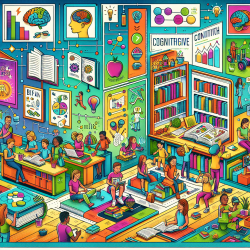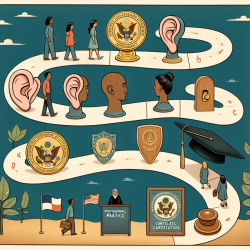As a practitioner in the field of speech therapy, staying abreast of innovative methodologies is crucial for providing the best care to patients. Recent research has highlighted the potential of Natural Language Processing (NLP) and Automated Speech Analysis (ASA) as groundbreaking tools in assessing speech-language changes in individuals with mild cognitive impairment (MCI) and Alzheimer's dementia (AD). This blog explores the findings from a study that correlates these technologies with traditional clinician assessments, offering new avenues for improving diagnostic accuracy and treatment planning.
The Role of Language Impairment in Neurodegenerative Disorders
Language impairment is a significant marker of neurodegenerative disorders like Alzheimer's disease. Traditional assessment methods often suffer from subjectivity and inter-rater variability, making it challenging to standardize evaluations across different clinicians. The integration of NLP and ASA offers a promising solution by providing objective measurements of speech characteristics.
Key Findings from the Study
The study involved audio recordings from participants diagnosed with AD, MCI, and healthy controls. Clinicians rated these recordings on several speech characteristics such as word-finding difficulty, incoherence, perseveration, and errors in speech. These ratings were then compared to variables extracted through NLP and ASA.
- High Clinician Agreement: The study found high agreement among clinicians in rating word-finding difficulty, incoherence, and perseveration.
- NLP and ASA Correlations: Variables extracted through NLP and ASA showed significant correlations with clinician-rated speech characteristics. For instance, word-finding difficulty was associated with factors like pause duration and syntactic complexity.
- Differentiating Clinical Groups: Word-finding difficulty and incoherence were effective in distinguishing between MCI/AD patients and healthy controls.
Implementing Research Outcomes
This research underscores the potential of integrating NLP and ASA into clinical practice. Here are some ways practitioners can leverage these findings:
- Adopt New Technologies: Incorporate NLP and ASA tools into your diagnostic toolkit to enhance objectivity in assessments.
- Pursue Further Research: Engage in studies that explore the application of these technologies across different languages and cultural contexts.
- Cultivate Multidisciplinary Collaboration: Work alongside technologists to refine these tools for broader clinical use.
The Path Forward
The integration of NLP and ASA with clinician assessments represents a significant advancement in understanding speech-language changes associated with neurodegenerative disorders. By adopting these technologies, practitioners can improve diagnostic accuracy, reduce subjectivity in assessments, and ultimately enhance patient care.










